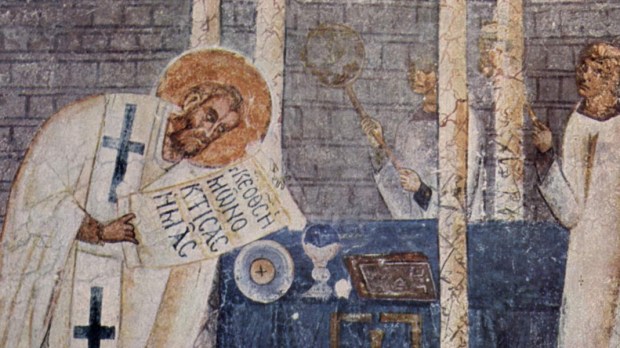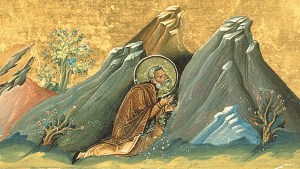Flourishing during the 3rd and 4rth centuries, the Desert Fathers chose a rather unconventional, radical spiritual path by seeking refuge and isolation in the desolate landscapes of the Egyptian desert, following the example of St. Paul the Hermit – an Alexandrian saint who is considered the first Christian anchorite. In so doing, they soon became beacons of spiritual insight and contemplative wisdom.
Driven by the desire to escape the complexities (and, paradoxically enough, the superficialities) of urban life, they embraced solitude, prayer, and introspection. Deeply rooted in timeless Christian spirituality, the teachings of the Desert Fathers continue to resonate with believers.
Here, we share with you three compelling reasons why delving into the sayings and writings of the Desert Fathers is a spiritually enriching endeavor for urban Catholics today.
1. Spiritual insight
The Desert Fathers retreated to the deserts to get away from the many unnecessary distractions of everyday living, dedicating themselves to prayer, fasting, and contemplation – something we might be able to do just every now and then, for limited periods of time, as when going on a retreat.
In their relative solitude (they were hermits, yes, but still kept some early forms of cenobitic life), they gained profound insight into the human soul and its filial relationship with God and others. By reading the sayings attributed to them (there are whole collections of Sayings of the Desert Fathers and the Desert Mothers), we can glean valuable lessons on the transformative power of silence and solitude.
These sayings were originally passed down from monk to monk. The version we currently have, most likely, compiled in the 5th century, simply describes the stories following a standard form: “Abba X said …” Most of these sayings are recorded responses to visitors and other monks who were seeking guidance.
Take, for example, a saying attributed to Abba Anthony:
“I saw the snares that the enemy spreads out over the world and I said groaning, ‘What can get through from such snares?’ Then I heard a voice saying to me, ‘Humility.’”
2. Practical guidance for Christian living
Living in relative isolation did not turn the Desert Fathers into “angels,” detached from the many difficulties of everyday life. If anything, it forced them to deal with these complications with no distractions whatsoever. Consequently, their teachings are filled with practical advice on living a virtuous, charitable, God-centered life.
Their sayings address common human struggles, providing guidance on humility, patience, and the cultivation of a compassionate heart. A story attributed to Abba Poemen (the most quoted abba in all the collection of the Fathers’ Sayings) says that once a brother monk rebuked him for washing his feet. Poemen simply replied, “We have not been taught to kill our bodies, but to kill our passions.”
3. Exemplars of Christian virtue
Even if it might seem somehow counterintuitive, the Desert Fathers lived lives of extraordinary virtue. One might think, at first, that a life lived in isolation is somewhat contrary to the Christian mandate to love one another – how could they charitably serve their fellow men, if they lived as hermits? The answer is relatively simple: They prayed for those who were not praying. But also, they lived exemplary lives, embodying the Gospel teachings in their daily actions. Their commitment to love, humility, and self-discipline serves as a powerful testament to the transformative potential of a life centered on Christ. Reading their writings allows us to witness an embodied, lived faith. Consider this story, attributed to Abba Theophilus:
One time, the blessed Abba Theophilus the archbishop went to Scetis. But the brothers gathered and said to Abba Pambo: ‘Tell the Father one word that he may benefit.’ The old man told them: ‘If he does not always benefit from our silence, then if we speak he will still not benefit.’



